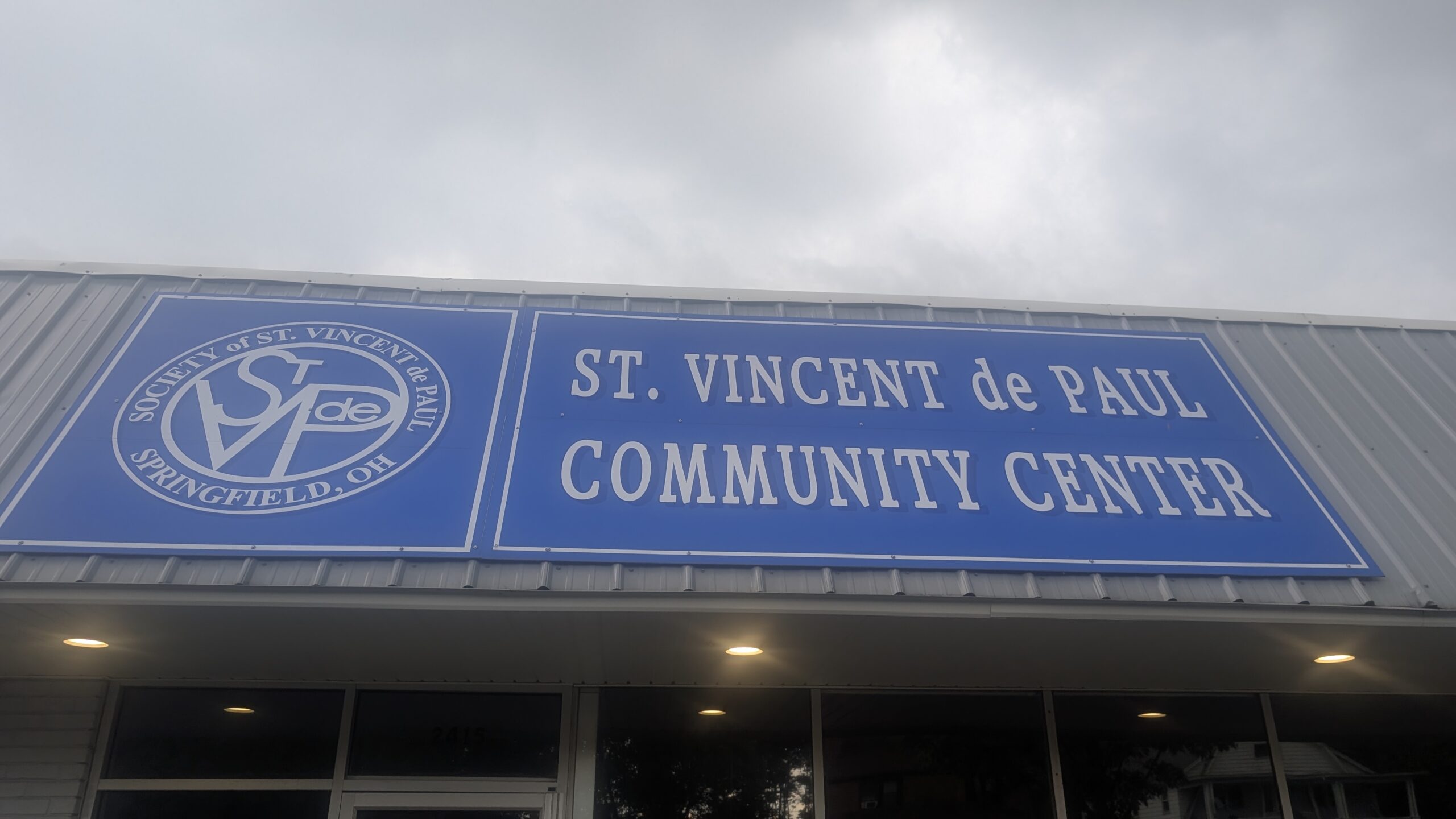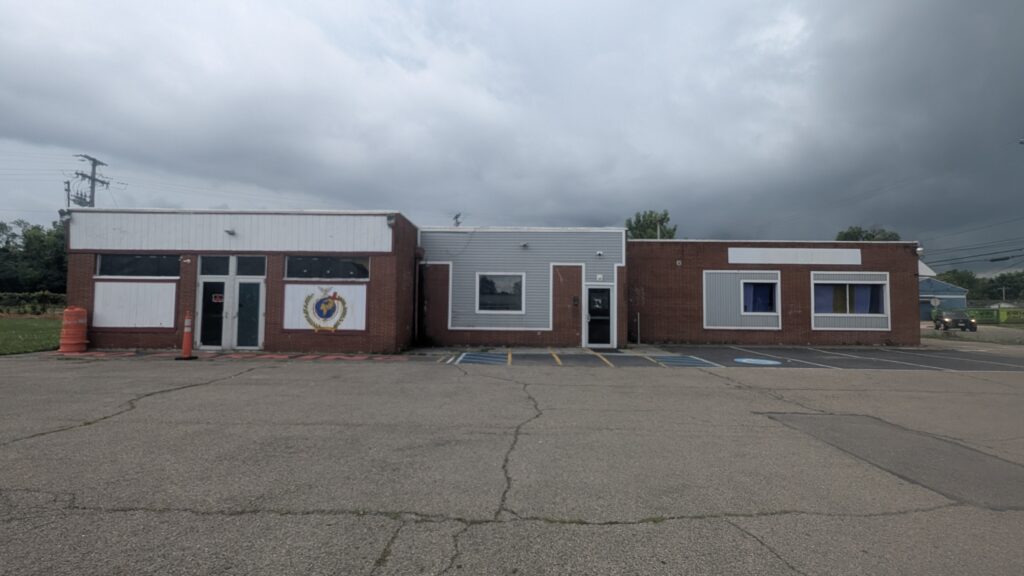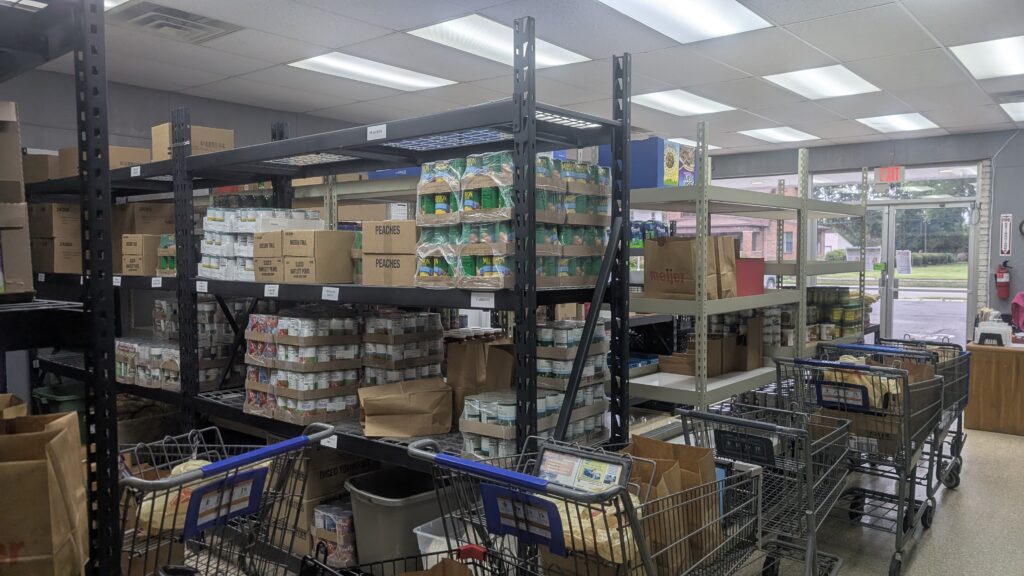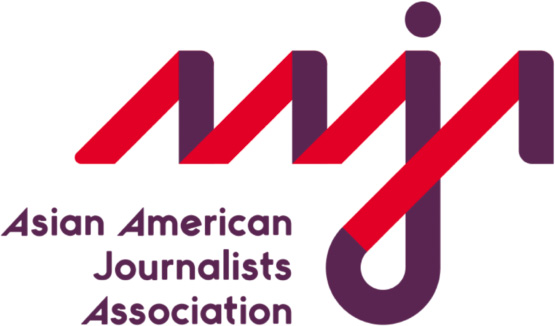immigration
 Local groups in Ohio are mobilizing to support Haitian immigrants as they face challenges from white supremacist organizations, legal hurdles, loss of work, and ICE.
Local groups in Ohio are mobilizing to support Haitian immigrants as they face challenges from white supremacist organizations, legal hurdles, loss of work, and ICE.
Published August 17, 2025
 Aditya Thiyag
Aditya Thiyag

The St. Vincent de Paul Community Center is one of many organizations helping to keep the Haitian community in Springfield, Ohio, afloat. (Photo by Aditya Thiyag.)
Situated among dilapidated apartment buildings and vacant warehouses lies the St. Vincent de Paul, a charity that owns a community center, neighboring food pantry and thrift store. Signs are posted in English, Spanish and Haitian Creole.
More than a dozen people shuffled into the nonprofit on a Wednesday afternoon in July 2025 looking for help. Among them, a single mother and her newborn, parents and their teenagers, who served as translators.
Some of these families have heard that their neighbors were snatched up by unmarked cars outside of the local courthouse. Others have lost their work permits and jobs and cannot pay for utilities or feed their families, according to Casey Rollins, the executive director at St. Vincent de Paul in Springfield.
Community organizations in Springfield have stepped up to provide critical services to those in need as the Trump administration seeks to end temporary protected status for Haitians — a decision that organizers fear could make the city ground zero for the next wave of deportations.
Rollins knows the challenges that Haitians are facing all too well. She said she spends most of her time helping people fill out paperwork for passports and asylum applications, as well as translating documents and complicated legal jargon, all while informing them of their rights.
She explained that Haitians are facing difficulties obtaining passports for their children — a lengthy process that can take at least two months to get approved. Asylum applications can take even longer to process.
“By that time, people can be deported,” she said. “These parents just want to ensure children want to stay with their parents no matter where they’re going.”
Two years ago, Springfield was the subject of major media attention after a man without a driver’s license crashed into a school bus, killing an 11-year-old child and injuring 20 others. But much of the attention surrounding the driver was that he was a Haitian immigrant.
Less than a year later, President Trump made incendiary comments during a presidential debate falsely claiming that Haitians in Springfield were eating cats and dogs.
These two incidents propelled the city and its estimated population of 15,000 Haitians into the spotlight by the fall of 2024. Soon after, the KKK and other white supremacist groups descended on Springfield.
“They put flyers on people’s cars just to threaten them and ask them to start packing, to go back home, calling them N words or F words. It’s been a rough ride for us,” said Viles Dorsainvil, the executive director of the Haitian Support Center.

Founded in 2023, the organization’s main goal is helping Haitians find immigration lawyers, assisting with housing and advocating for the Haitian community.
Dorsainvil said the idea of creating a central hub where Haitians could come and ask questions emerged after community leaders gathered to figure out ways to best help new immigrants arriving in Springfield.
Since the center’s inception, there have been monthly meetings between various groups to discuss issues faced by Haitians. These meetings also serve as a way to highlight various resources available to Haitians, like language learning services and guidance on how to make utility payments.
Central Christian Church also provides community for Haitians in Springfield, assisting with financial donations.
Carl Ruby, senior pastor at the church, said the most common misconception about Haitians is the belief that they immigrated illegally, which has amplified anti-immigrant sentiment.
Ruby has been a vocal advocate about the positive impact the Haitian community has had on the city. And he has previously delivered sermons about the topic of immigration and helping the vulnerable.
In 2010, after a 7.0 magnitude earthquake devastated Haiti, the U.S. granted Haitians “temporary protected status,” also known as TPS. This gives Haitian nationals, and individuals without nationality who last resided in Haiti, the ability to live and work in the U.S. temporarily.
Temporary protected status has been extended for Haitians for more than a decade, with the last extension granted by President Biden through February 2026. The Trump administration attempted to terminate these protections in July 2025, and the ensuing court battle over Haiti’s TPS designation has put thousands of Haitians in limbo.
Ruby said that “[Haitians] are doing everything they can to try to find a way to stay.” But many people he has spoken with fear that Immigration and Customs Enforcement will try to deport them.
“One day, they’ll feel kind of optimistic … ‘I think somehow this is going to work out, something’s going to happen, and we’re going to be allowed to stay,’” Ruby said. “Then, either a news event or a tweet or something happens and the next day they’re all terrified that they’re going to be swept up and deported.”
Back home, the situation in Haiti is dire.
“Life is so difficult there,” Dorsainvil said. “Millions have already been displaced, not having medications or clean water or food, and there is a huge humanitarian crisis now.”
Following the assassination of Haitian President Jovenel Moïse in 2021, gangs seized “near-total control” of Haiti’s capital, Port au Prince, according to senior U.N. officials.
“This is life or death for Haitians,” Ruby said, adding that several members of the church fear for their families currently living in Haiti and are worried about what they would face if they are forced to return.
“If they go back now, the risk of being assassinated or kidnapped or attacked is way higher,” he said. “Gangs are going to go out of their way to attack them if they’re sent back home.”
Despite violence back home, Haitians remain ensnared by the daily struggles of life in Springfield.
Dorsainvil said losing work permits has put Haitians in “survival mode.” He added that many Haitians in Springfield are living paycheck to paycheck.
“They have bills to pay — rent, mortgage or insurance. Some of them have kids in Haiti or other family members that they were supporting,” he said.

Several businesses have expanded and been established due to the presence of Haitian workers, but Ruby says “it’s hard for them to even bid on projects now because they don’t know if those Haitian laborers are going to be here.”
“Everyone is waiting to see what happens when TPS ends,” Ruby said.
In the meantime, community organizers are taking a more proactive approach. “There’s a lot happening behind the scenes trying to get ready to support [the Haitian community]” when that time finally arrives, he said.

University of Southern California
immigration




Seattle 2025





Apply
Become a fellow or editor
Donate
Support our impact
Partner
Work with us as a brand

The Asian American Journalists Association (AAJA) is a membership nonprofit advancing diversity in newsrooms and ensuring fair and accurate coverage of communities of color. AAJA has more than 1,500 members across the United States and Asia.